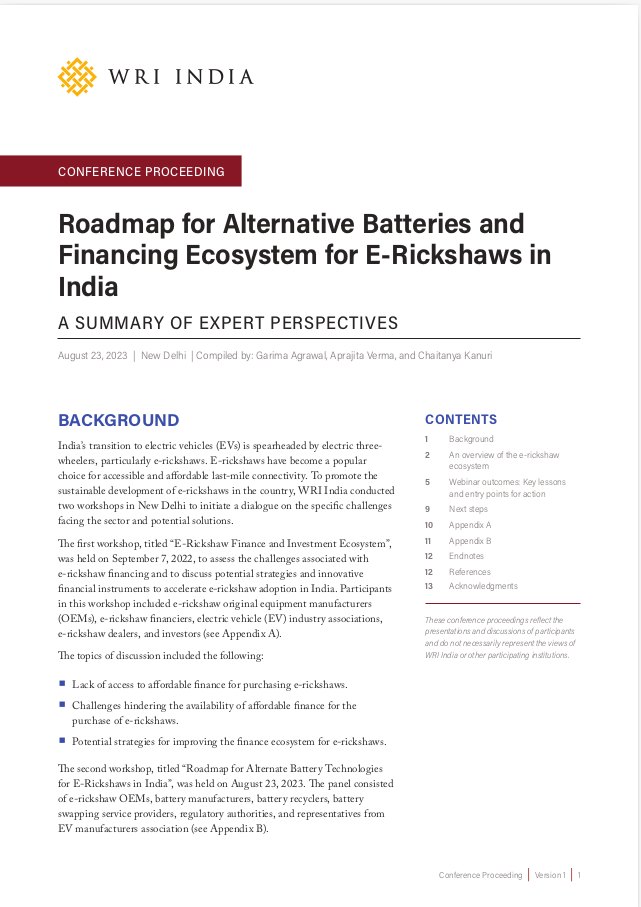Roadmap for Alternative Batteries and Financing Ecosystem for E-Rickshaws in India

Electric three-wheelers, particularly electric rickshaws, are a crucial mode of affordable and shared mobility in Indian cities, serving over 3 million people in their daily commutes. They are popular both in urban centers and remote areas, providing essential connectivity between small towns and villages.
E-rickshaws contribute significantly to environmental sustainability and livelihood opportunities. They offer a low-barrier entry for employment and operate with zero tailpipe emissions. The growth of e-rickshaws has been supported through subsidies, permit exemptions, and favorable policies at both national and state levels. Despite these benefits and efforts to develop a sustainable ecosystem, numerous challenges persist, such as diminished driver earnings due to oversupply, lack of affordable financing, unsafe charging practices, and adverse environmental impacts stemming from informal recycling practices.
The conference proceedings provide insights into innovative financing models for e-rickshaws to facilitate their adoption and initiate a dialogue about the opportunities and challenges in developing a safe and sustainable e-rickshaw ecosystem.
